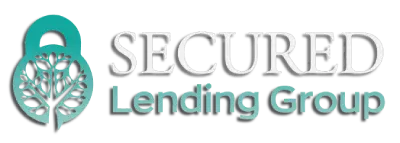
Understanding the Difference Between Conforming Loans and FHA Loans
When it comes to securing a mortgage, understanding the various types of loans available is crucial. Among the most common are conforming loans and FHA loans. Each of these loan types has distinct characteristics that cater to different financial situations and homebuyer needs. In this blog, we’ll break down the key differences between conforming loans and FHA loans, helping you determine which option may be best for you. Plus, we’ll highlight how Secured Lending Group, a top-rated lender, can assist you in navigating your mortgage journey.
What are Conforming Loans?
Conforming loans are conventional loans that meet the guidelines set by Fannie Mae and Freddie Mac, government-sponsored entities that provide liquidity to the mortgage market. Here are some important features of conforming loans:
- Loan Limits: Conforming loans have specific loan limits that can vary by location. In 2024, the baseline conforming loan limit for a single-family home is $726,200, although it can be higher in certain high-cost areas.
- Credit Score Requirements: Generally, borrowers need a credit score of at least 620 to qualify for a conforming loan. However, higher credit scores can result in better interest rates and terms.
- Down Payment: While the minimum down payment for a conforming loan can be as low as 3%, it varies based on the lender’s requirements and the borrower’s financial profile.
- Mortgage Insurance: If the down payment is less than 20%, borrowers will typically need to pay for private mortgage insurance (PMI), which protects the lender in case of default.
- Flexibility: Conforming loans offer flexibility with adjustable-rate mortgages (ARMs) and fixed-rate options, allowing borrowers to choose a plan that suits their financial situation.
What are FHA Loans?
FHA loans are government-backed loans insured by the Federal Housing Administration (FHA). They are designed to help lower-income and first-time homebuyers qualify for a mortgage. Here are the key features of FHA loans:
- Lower Credit Score Requirements: FHA loans are more lenient regarding credit scores, allowing borrowers with scores as low as 580 to qualify for a loan with a minimum 3.5% down payment. Those with scores between 500 and 579 may still qualify with a 10% down payment.
- Higher Debt-to-Income Ratios: FHA loans permit higher debt-to-income ratios compared to conforming loans, making it easier for borrowers with existing debt to qualify.
- Upfront Mortgage Insurance Premium: FHA loans require an upfront mortgage insurance premium (UFMIP) of 1.75% of the loan amount, along with ongoing monthly premiums. This insurance protects lenders against losses in case of default.
- Assumable Loans: FHA loans can be assumed by a buyer if the original borrower sells the property, which can be a significant advantage if interest rates rise.
- Limitations on Loan Amounts: FHA loan limits vary by county and are typically lower than conforming loan limits, which may limit options in high-cost areas.
Key Differences at a Glance
| Feature | Conforming Loans | FHA Loans |
|---|---|---|
| Credit Score Requirement | Typically 620 or higher | As low as 580 (3.5% down payment) |
| Down Payment | As low as 3% | Minimum 3.5% (580+ score) |
| Mortgage Insurance | PMI required if down payment <20% | UFMIP and monthly premiums required |
| Loan Limits | Higher limits, varies by location | Generally lower than conforming |
| Debt-to-Income Ratios | More stringent | Higher ratios allowed |
Choosing the Right Loan for You
When deciding between a conforming loan and an FHA loan, consider your financial situation, credit score, and long-term goals. If you have a higher credit score and can afford a larger down payment, a conforming loan might offer better terms. On the other hand, if you’re a first-time homebuyer or have a lower credit score, an FHA loan could be a viable option.
Why Work with Secured Lending Group?
Navigating the mortgage landscape can be daunting, but working with a top-rated lender like Secured Lending Group can simplify the process. Their team of experienced mortgage professionals is dedicated to helping you understand your options and guiding you through the application process. Whether you’re leaning toward a conforming loan or an FHA loan, Secured Lending Group will provide personalized support tailored to your unique financial situation.
Conclusion
Understanding the differences between conforming loans and FHA loans is essential for making informed decisions about your home financing options. By working with a reputable lender like Secured Lending Group, you can gain valuable insights and secure the best mortgage solution for your needs.
If you have questions or are ready to begin your home loan journey, contact Secured Lending Group today. Your dream home awaits!






